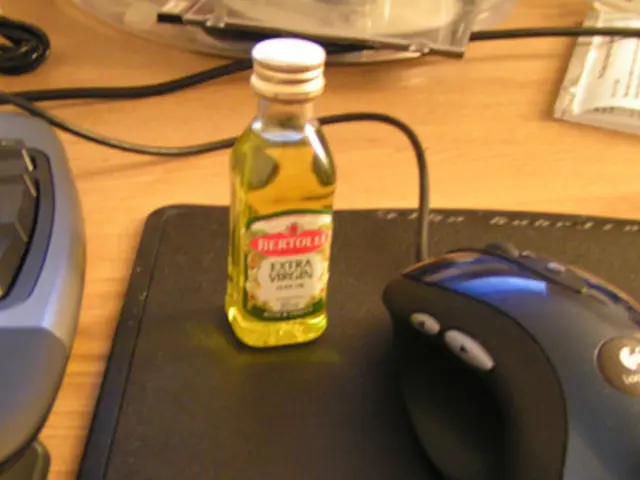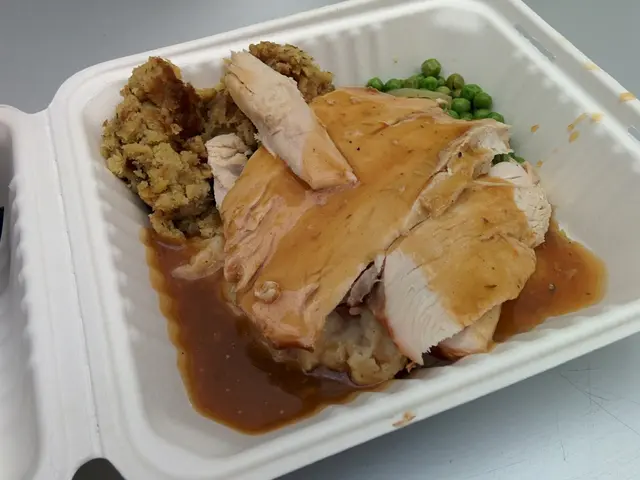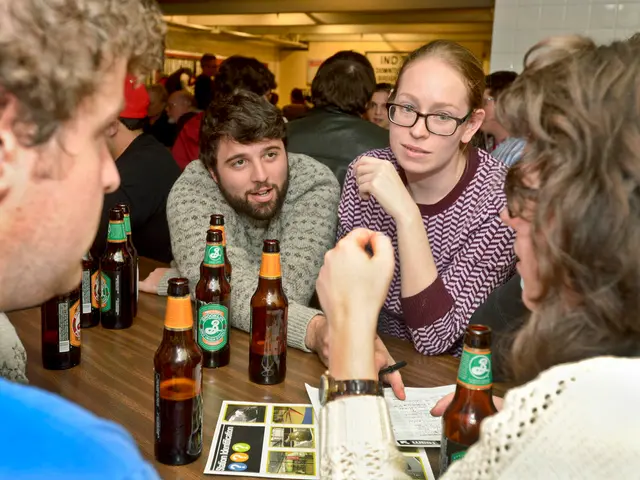Cancer-fighting experimental vaccine triggers an immune response in select patients during small-scale testing
Off-the-Shelf Cancer Vaccine Shows Promise in Early Trials
A groundbreaking cancer vaccine, ELI-002 2P, has shown promising results in early clinical trials for patients with pancreatic and colorectal (bowel) cancer who have a mutation in the KRAS gene. The vaccine, which is mass-produced and doesn't require personalisation, has shown to be safe, induce strong immune responses, and potentially extend the lives of patients[1][3][4].
In the Phase 1 study, involving 25 high-risk patients, approximately two-thirds of them developed robust T cell immune responses targeting KRAS-mutated cancer cells, including both CD4 helper and CD8 killer T cells[3][4]. These responses were associated with longer relapse-free survival and overall survival, with many patients remaining disease-free for nearly 20 months after vaccination[3].
Remarkably, the vaccine appeared to completely eliminate detectable disease biomarkers in a few pancreatic and colorectal cancer patients[1][2]. Furthermore, it stimulated immune responses to additional tumor-associated mutations, potentially broadening anti-tumor activity beyond KRAS targets[1][2].
Despite these encouraging findings, researchers and independent experts emphasise that the data are preliminary and require validation in larger, randomised Phase 2 or 3 clinical trials to confirm efficacy and long-term benefits[3][4][5]. These trials are necessary to fully validate the clinical benefit of ELI-002 2P and establish it as a standard treatment option.
The "off-the-shelf" nature of the vaccine allows for standardised, mass-produced treatment accessible to more patients, avoiding the time and expense of personalised vaccines[1][3][4]. If the vaccine proves effective in larger trials, it could potentially benefit many patients with pancreatic and bowel cancers that have mutations in the KRAS gene.
The European Union's medicine regulators have warned against unproven cancer treatments advertised online, and caution should be exercised until the findings are confirmed in larger studies. Dr Richard Sullivan, director of the Institute of Cancer Policy at King's College London, and Dr Magnus Dillon, a clinician scientist at the Institute of Cancer Research in the United Kingdom, have both expressed optimism about the vaccine's potential, but stressed the need for further research[3][5].
[1] Nature Medicine [2] Science Translational Medicine [3] BBC News [4] The Guardian [5] The Telegraph
Read also:
- Instructions for Harmonizing Fitbit with Your Apple Device
- End-of-Life Management and Care for Glioblastoma Patients
- Government agency GovCIO plans to acquire SoldierPoint Digital Health, aiming to expand digital health services for the VA.
- Efficiently Manipulating an Immobile Person in Bed: Expert Techniques Revealed








